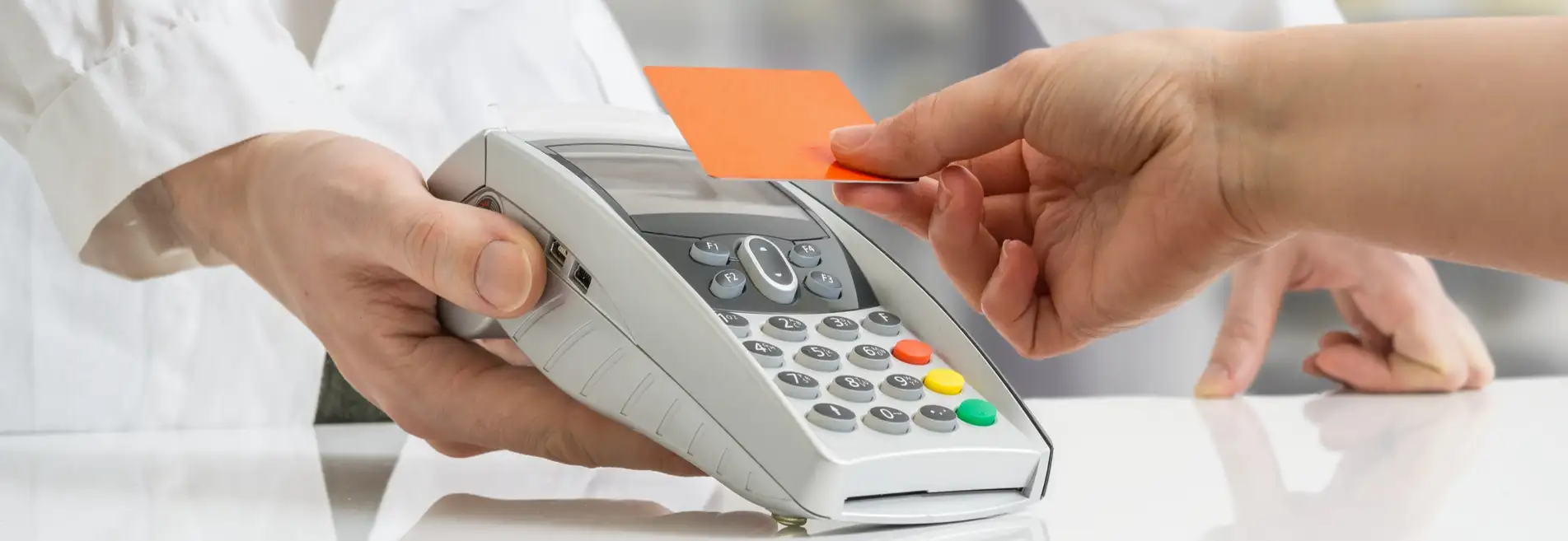
Dual Diagnosis Treatment Center Arizona
THE RELATIONSHIP BETWEEN SUBSTANCE ABUSE AND MENTAL HEALTH
Table of Contents
When it comes to addiction and mental health, it is quite common for individuals who engage in substance abuse to also have simultaneous mental health conditions.
In fact, according to the National Institute on Drug Abuse (NIDA), 1 in 4 individuals with a substance use disorder also have other mental health issues. Unfortunately, mental health and addiction often go hand-in-hand for a number of reasons.
In most cases, individuals will engage in substance abuse as a means of self-medicating the negative thoughts and emotions caused by their mental health disorders. However, this is not a permanent solution, and can even make these symptoms worse over time.
While not as common, a person’s addictive behaviors can sometimes be the cause of their mental health conditions. This is because certain drugs will chemically alter the brain, causing permanent changes or damage to a person’s cognitive functions and abilities when repeatedly abused.
Immediate Placement in Dual Diagnosis Rehab
Understanding Dual Diagnosis Treatment Centers in Surprise, AZ
Dual diagnosis is a term that describes two combined health problems:
- Drug or alcohol issues serious enough for an official diagnosis of substance use disorder or SUD
- Separate mental health issues serious enough for an official diagnosis of mental illness
You may also hear two other terms used to describe the same situation. One of these terms is comorbidity. The other is co-occurring disorder or COD.
At a minimum, about nine million people in the U.S. have a dual diagnosis. However, the number of people affected may be significantly higher. That is true because many cases of dual diagnosis likely go unreported and untreated.
Learn More About our Dual Diagnosis Rehab
Dual Diagnosis or Co-Occurring Disorders
Dual diagnosis is called comorbidity because of how it affects you. Namely, when you have serious substance problems, your mental health can suffer. At the same time, serious mental health issues tend to increase the severity of your substance problems. In other words, the two conditions make each other worse.
Real-life statistics put a close focus on the relationship between mental health and substance use. About half of everyone diagnosed with a mental illness also has a substance use disorder. In addition, about half of everyone with a SUD also has a diagnosable mental illness.
Dual diagnosis treatment addresses both substance problems and mental illness. You can find this kind of help in two types of programs:
Programs in both settings can meet your needs if they’re well-designed and follow dual diagnosis treatment guidelines.

MOST COMMON CO-OCCURRING DISORDERS WITH SUBSTANCE ABUSE
While many different mental disorders have been found to accompany addiction, there are a few mental illnesses that prove particularly common amongst individuals struggling with substance abuse. These include:
- Depressive and anxiety disorders
- Bipolar disorder
- Eating disorders
DEPRESSION AND ANXIETY
Depressive and anxiety disorders are regularly linked to drug and alcohol addiction, often serving as the reason why many people began using these substances in the first place.
When people are desperate to stop feeling bad, they may not hesitate to jump on the first solution that presents itself. In many cases, this answer is alcohol or narcotics.
This trend is particularly prominent in individuals who are struggling with post-traumatic stress disorder (PTSD). Unresolved trauma can result in experiencing both depression and anxiety, amongst various other physical and emotional repercussions.
Thus, the temporary relief provided by getting drunk or high can feel too good to resist, especially if an individual does not have the means or support to seek out professional help.
BIPOLAR DISORDER
Particularly amongst cocaine users, bipolar disorder is another extremely prevalent mental condition associated with addiction. This is because of the extreme high and low periods that characterize bipolar disorder.
This often leads those who have this condition to use cocaine or other stimulant drugs as a means of improving their depressive moods and low energy levels.
Unfortunately, someone with bipolar disorder may be more susceptible to becoming addicted to these substances, as they may become unable to experience happiness or pleasure without them.
EATING DISORDERS
Eating disorders can both mirror the qualities of addiction, as well as exist alongside a substance use disorder.
Like other mental health disorders, individuals with an eating disorder may attempt to self-medicate with drugs or alcohol to ease the more difficult side effects that come with it. This, of course, increases their risk of developing a dependence on these substances.
There is also the fact that some drugs can actually support or cause an eating disorder, including stimulants such as Adderall, meth and cocaine. These are all drugs that can suppress a person’s appetite while minimizing the noticeability of hunger pains.
Meanwhile, alcohol and other depressants may allow people with eating disorders to feel more capable of eating or not eating by temporarily alleviating stress or increasing impulsivity.
TREATING CO-OCCURRING SUBSTANCE USE AND MENTAL HEALTH DISORDERS
Dual diagnosis treatment will incorporate both mental health and addiction treatment methods, and will usually be available through two types of programs:
- Addiction treatment facilities
- Mental health treatment facilities
Programs in both settings can meet your needs if they are well-designed and follow dual diagnosis treatment guidelines. Furthermore, long-term recovery options may be the best way to deal with co-occurring substance and mental health issues.
Short-term recovery programs can help treat a number of health concerns as well. After all, seeking any form of professional treatment is better than attempting to overcome these issues on your own, or simply ignoring them.
However, these may not give you enough time to fully recover. Thus, long-term addiction treatment options that offer a full continuum of care will likely be your best option.
SEEKING OUT DUAL DIAGNOSIS TREATMENT IN ARIZONA
If you are looking for treatment centers that cater to co-occurring disorders in Arizona, you need to look no further than Emerald Isle Health & Recovery. Our facilities are located within the major metropolis of greater Phoenix, offering dual diagnosis addiction treatment in Surprise and Sun City, Arizona.
You will find various treatment services here, including holistic therapies and evidence-based approaches to managing co-occurring substance use and mental health conditions.
Accredited by The Joint Commission, our luxury dual diagnosis treatment centers in Surprise, AZ meet the highest standards of care, and are dedicated to ensuring your well-being. In addition, we will provide plentiful amenities that can make your stay more comfortable.
SERVICES OFFERED BY EMERALD ISLE DUAL DIAGNOSIS TREATMENT PROGRAMS
Finding a recovery center that will also treat simultaneous mental disorders can offer an essential comprehensive level of care to those in recovery from substance abuse.
This is because, in order to achieve long-term sobriety, you must first address your mental health. If you do not learn how to cope with the effects of your mental illness in a healthy manner, relapse may be more likely to occur after leaving a recovery center.
While a dual diagnosis recovery plan may incorporate several different approaches to treatment depending on a person’s specific care needs, this process will usually involve a medical detox process, followed by enrollment into a residential treatment program.
MEDICAL DETOX
Detox is a process designed to help you safely halt your use of drugs or alcohol. When people with a substance use disorder stop drinking or taking drugs, they will usually have to endure a withdrawal period.
Withdrawal symptoms can be mild or moderate, or, they may be severe enough to make you feel extremely uncomfortable or unwell. In more serious cases, such as that of an addiction to alcohol, benzos, or opioids, this process can even be life-threatening.
Thus, participating in a supervised detox program will ensure that you have access to a clinical team and medical supervision at all times, which can help in managing or preventing some of the more intense symptoms of withdrawal.
24 Hour Dual Diagnosis Rehab Hotline
Residential Treatment
Residential dual diagnosis treatment centers in Surprise, AZ are recommended for most affected people. Why? To recover from a dual diagnosis, you will need plenty of help.
In many cases, even the most intensive outpatient programs do not offer enough support. To get the assistance you require, you can turn to an inpatient program.
During treatment, you may receive medication for your mental illness symptoms. The type of medication required depends on the nature of your mental health issue.
You may also receive medication as part of your substance treatment. That is especially true if you suffer from:
Dual diagnosis care also relies on the use of behavioral therapy. This type of treatment gets you actively involved in addressing your symptoms.
Dual diagnosis programs may use a variety of behavioral therapy techniques. Common options include:
- Dialectical Behavioral Therapy or DBT
- Cognitive Behavioral Therapy or CBT
- Assertive Community Treatment or ACT
- Contingency Management
- Therapeutic Communities or TCs
Your treatment team will help determine which of these therapies will give you the best results.
MEDICATION-ASSISTED TREATMENT
Particularly for those recovering from alcohol, benzos, or opioid addictions, medication management can be essential in their effective recovery from substance abuse.
This may include medications that can reduce substance cravings, which can help to prevent relapse.
Furthermore, those struggling with additional mental health conditions may be provided psychiatric medications to help combat the side effects of these, as well.
THERAPY PROGRAMS
Dual diagnosis care also relies on the use of several types of therapy, although it predominantly relies on different types of behavioral therapy. This level of treatment enables you to actively address and better learn how to manage your mental illness.
Common types of behavioral therapy used in dual diagnosis recovery include:
- Dialectical Behavior Therapy (DBT)
- Cognitive Behavioral Therapy (CBT)
- Assertive Community Treatment (ACT)
- Somatic Experiencing Therapy (SE)
These will typically be carried out through individual therapy sessions. However, family therapy and group therapy may also be utilized as a means of building better support systems and recovery communities.
These programs may also incorporate several alternative forms of therapy as well, such as art therapy, music therapy, equine therapy, or anger management classes.
AFTERCARE PROGRAMS
Your journey to sobriety does not end once you leave a recovery center. In fact, this is just the first step in the process of overcoming addiction and mental illness. That is why Emerald Isle recovery centers offer aftercare and relapse prevention services to all of our clients.
These support groups can provide essential recovery coaching, and teach you important life skills that can build your self-esteem during your reintegration process into independent living.
Many people have found that participating in aftercare services over an extended period of time was essential in their long-term recovery from substance abuse.
Long-Term Dual Diagnosis Treatment Centers in Surprise, AZ
Long-term treatment may be the best way to deal with any substance or mental health issue. That includes the combined effects of dual diagnosis.
In a shorter-term program, you may not have enough time to get the help you need.

Best Dual Diagnosis Treatment Centers for Young Adults in Surprise, AZ
A large percentage of those affected by dual diagnosis are young adults. In fact, people in this age group have the highest chances of experiencing combined mental health and substance problems.
Among other things, this means that dual diagnosis recovery services must meet the needs of young adults. This is why some of the Emerald Isle dual diagnosis programs specialize in treating adults in their late teens or early 20s.
However, this type of age-focused program is not strictly necessary. The top dual diagnosis centers, such as ours, will offer care for all adults, regardless of age.
Dual Diagnosis Inpatient Treatment Centers Near You in Surprise, AZ
What are your options for inpatient dual diagnosis treatment centers near you in Surprise, AZ?
Emerald Isle offers dual diagnosis addiction treatment in Surprise and Sun City, Arizona. We are located within the major metropolis of greater Phoenix.
This means that you will find a variety of programs here. Our luxury dual diagnosis treatment centers in Surprise, AZ meet the highest standards of care.
In addition, we will provide plentiful amenities that can make your stay more comfortable.
Payment Options for Dual Diagnosis Treatment Centers in Surprise, AZ
Modern health insurance plans often include coverage for dual diagnosis treatment.
As an alternative to private insurance, many people rely on the coverage provided by Medicaid. A third option for covering your costs is a payment agreement that fits your available budget.
A concern that many people share when looking to treat addiction and mental illness is how they will pay for these services. Fortunately, many recovery centers, such as Emerald Isle, will accept most major insurance providers.
If you are unsure about what level of coverage you are entitled to, or what your payment options are, there is no need to worry.
Simply contact one of our addiction experts today, and we will be happy to help verify your insurance and discuss additional financing options that will work for you.
Free Insurance Verification for Dual Diagnosis Rehab
Get More Information On Dual Diagnosis at Emerald Isle
Here at Emerald Isle, our integrated treatment approach and dedication to the well-being of our clients places our facilities among the top recovery centers in Arizona. When helping those with dual diagnoses, this is no exception.
We will provide you with a treatment plan that caters to your specific care needs, and allow you to recover in a peaceful and safe environment amongst the beautiful natural landscape of Arizona.
So don’t wait; contact one of our experts today at 855-613-0620, and let us help you get started on a path to overcoming your co-occurring disorders so that you can finally achieve long-term sobriety and peace of mind.


